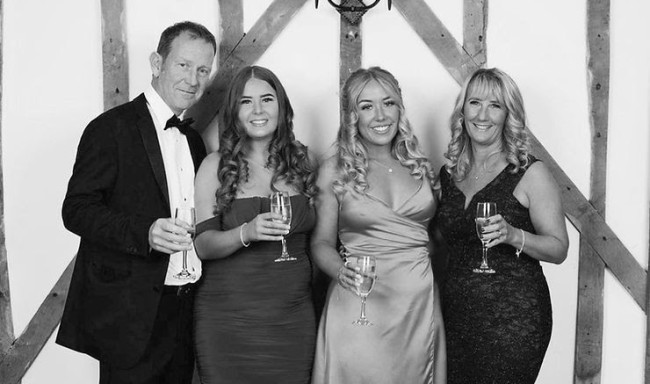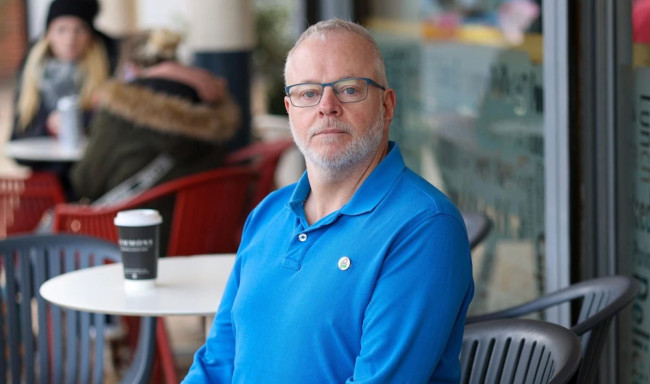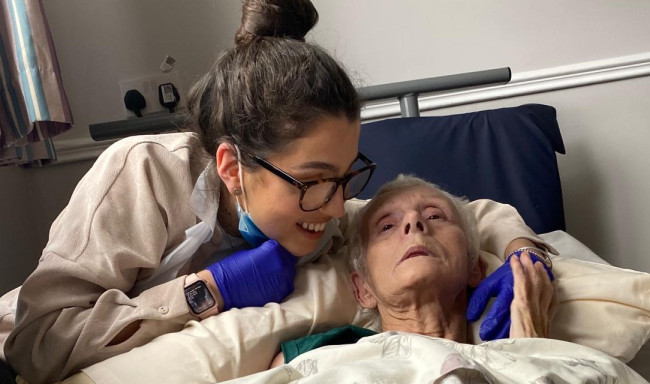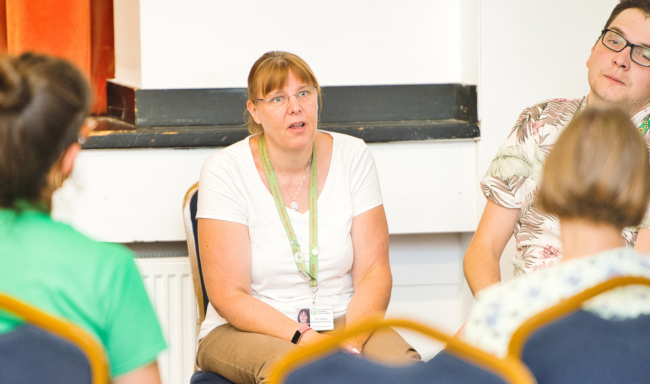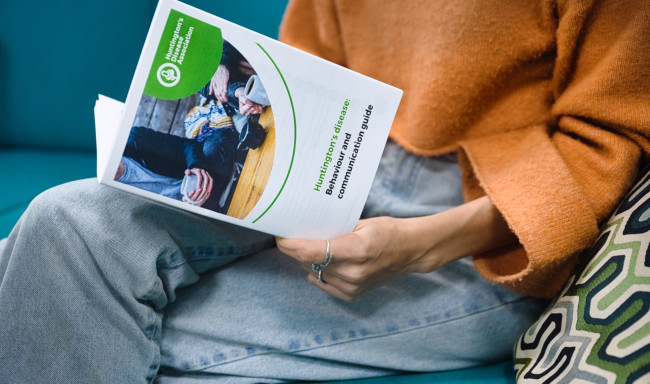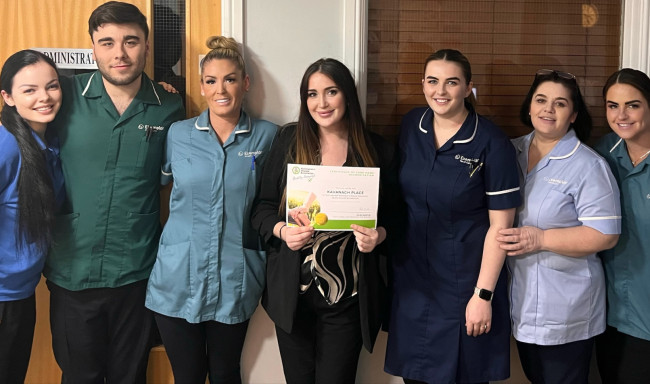Ruth has worked as a carer for a family of three siblings with Huntington's disease. Ruth tells us what it is like day-to-day and how she manages the complex symptoms of the disease.
Tell us a little bit about yourself and your caring background.
"I'm Ruth, I'm 32 and caring is my passion. I just love the enjoyment that comes from improving someone else's life. I have worked in a care setting for around 15 years, in nursing homes, community care and private care. I have worked at my current position for five years caring for a family of three siblings with Huntington's disease."
Why did you get into caring?
"I got into caring at a young age after growing up spending time at the care home that my grandmother managed. I just loved speaking to people from all walks of life and listening to their stories."
Before working with the family you are currently with, had you heard of Huntington’s disease or looked after anyone with Huntington’s disease?
"No, before I worked at my current position I hadn't heard of anyone with Huntington’s disease or cared for anyone with the illness."
Please tell us about your current caring situation.
"I started working under a personalised health budget for a family of siblings with Huntington's disease in 2018, Charmian, Roy and Karen. The husband of Charmian oversees their care. Karen and Roy lived in their own home together with carers 24 hours a day. Charmian lives in her own house with her husband Chris. We had a team of 13 staff members who cared for them all. In 2019 we sadly lost Karen which was a huge loss to us all as we are all bonded as a family. We continued to care for Roy and Charmian until we unfortunately lost Roy in 2023. Now myself and two other colleagues care for Charmian alongside her husband 12 hours a day and four nights a week. We are all extremely close and feel as Charm and Chris our part of our family. We see Professor Rickards twice a year for Charm’s bi-annual review. In between the appointments, we know that we can get in contact with him via email to raise any concerns and he will respond within a day or so."
What does daily life look like?
"Our day starts at 9.00am when we arrive at the house. We spend some time with Chris if he has done the previous night shift or with the staff member on duty and we have a hand over before starting our day. We provide care and support in every aspect of Charm's life including washing, feeding, taking her out in the community and on holidays. Each day is different depending on mood, weather or appointments. We take each day as it comes and never push to do anything that Charm doesn't want to do, and Charm will make it clear. Charm loves being outdoors so we will always strive to ensure Charm is living each day to the fullest as we know especially with Huntington’s disease you never know what is around the corner. Charm enjoys spending time with all our family. On weekends during the summer we all go and spend time together as one big family. We enjoy going on holidays two times a year always ensuring Charm is having an amazing time. We provide care and support until 9.00pm before we hand over to the night carers. Some days it can be very challenging as Charm's behaviour can change with a drop of a hat. Some days we have the most amazing days where she is happy and loving, some days can be truly horrendous with her being angry, upset and swearing at you and we don't know what is wrong. These days can be very testing. I will admit I have struggled but I have to remember that Charm can not help the way she is acting and it is the condition. The good days outway the bad."
What do you wish you knew about the disease before you took on the role and what do you feel could have helped you?
"I feel like more education about Huntington’s needs to be done during health and social care education or staff training in any health care setting. I had no idea about the condition or what it entails. I wish I had more understanding of how the condition affected the individual as it is very hard to understand whilst working alongside it. It can be very frustrating when the patient can't communicate their needs and you are trying to work out step by step what they need."
What advice would you give to other professional carers looking after someone with Huntington’s?
"I would say it is a very rewarding job and it is a privilege to care for someone with the condition. It takes a lot of patience and love to care for someone whose mood can change within seconds. You have to try and remember that it isn't their fault, it is the condition that is causing them to become angry. If you show them happiness and love they will show you it back."
In what ways have you used the Huntington’s Disease Association and how has this helped you in your role?
"I enjoy reading about other carers' insights as it reassures me that I am doing my best and not the only one that struggles sometimes."
If you are affected by Huntington’s disease and are in need of support or advice, please contact us on 0151 331 5444 or email info@hda.org.uk. Our dedicated phone line is open 9 am – 5 pm, Monday – Friday with Specialist Advisers waiting at the other end to offer you support.


